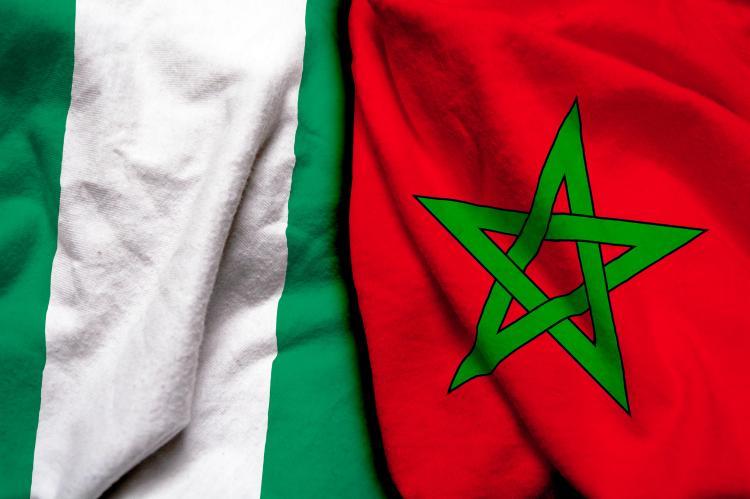Geopolitics of Nigeria-Morocco gas pipeline
During the Moroccan King Mohammed VI’s first-ever visit to Nigeria in 2016, since his ascension to the throne 18 years earlier, the ambitious Nigeria-Morocco Gas Pipeline project was unveiled to transport Nigerian gas to Morocco and potentially Europe via 13 other existing and potential West African gas importing countries from Nigeria. The $25-billion 7,000km project […]

During the Moroccan King Mohammed VI’s first-ever visit to Nigeria in 2016, since his ascension to the throne 18 years earlier, the ambitious Nigeria-Morocco Gas Pipeline project was unveiled to transport Nigerian gas to Morocco and potentially Europe via 13 other existing and potential West African gas importing countries from Nigeria.
The $25-billion 7,000km project would be an extension of the existing offshore pipeline currently running from Lagos to Cotonou, Lomé, Tema and Takoradi; and is designed to extend further, covering Abidjan, Monrovia, Freetown, Conakry, Banjul, Dakar, Nouakchott, Tangiers in Morocco, and Cádiz in Spain. When completed in 25 years, it would be the world’s longest offshore pipeline.
Though Nigeria and Morocco have maintained a diplomatic relationship over the decades, the former’s support for the sovereignty of the Sahrawi Arab Democratic Republic (SADR), which the latter has vehemently resisted, claiming that it’s part of its territories, has kept the relationship quite cold, to say the least.
Besides, Morocco had, in 1984, withdrawn from the then Organisation for African Unity (OAU), in protest against the organisation’s decision to recognise the SADR as a member-state. It remained the only African country that wasn’t a member of the continental body for 33 years until 2017 when its request for readmission to the body, which had changed its name to African Union (AU), was granted.
However, even before its readmission, Morocco has been trying to improve its relationship with Nigeria in its increasingly desperate pursuit of alternative sources of gas supply away from Algeria, one of its important sources of gas yet its geopolitical rival and indeed next-door archenemy.
Morocco has relied on Algerian gas for a tenth of its electricity production under the Maghreb-Europe gas pipeline arrangement that transports Algerian gas to Spain through Moroccan territories.
Though Algeria and Morocco share largely the same historical, ethno-cultural, and religious backgrounds, their relationship has been characterised by tensions over border disputes, leading to armed skirmishes on many occasions and even a full-scale war in 1963.
Also, Algeria’s support for the Sahrawi people’s struggle for independence has fueled the persistent tensions and fierce geopolitical power struggle between the two neighbours whose shared land borders have remained closed since 1994.
Last year, Algeria cut off its already tension-ridden relationship with Morocco; and barely a month later, it followed it through with a decision to not renew the gas supply contract via the pipeline that goes through Morocco, thereby effectively ending its gas supply to Morocco, reassuring Spain, however, that it wouldn’t be affected as it (Algeria) would instead use its direct offshore pipeline and shipping to maintain the supply to it. Since then, renewed tensions between Algeria and Morocco heightened, warning of an imminent war at some point.
Obviously, Morocco had anticipated Algeria’s decision to cut off the gas supply to it, which explains its determined pursuit of an alternative source from Nigeria. After all, the fact that it (Morocco) realises that the Nigeria-Morocco pipeline would only reach its territories at its final stage i.e., after 25 years, yet it remains determined to proceed anyway, suggests its loss of hope in the possibility of an improved relationship with Algeria that would guarantee her reliable and sustainable gas supply free of the nightmare of political blackmail.
Interestingly, long before this project was proposed, Algeria had apparently anticipated it and hence wanted to undermine its feasibility and frustrate it all along by proposing the Trans-Saharan gas pipeline to transport Nigerian gas to Europe via the Republic of Niger and Algerian territories. It has since pushed for it that an agreement to that effect between it and Nigeria was, in fact, signed in 2002. It has equally tried to dissuade Nigeria from going ahead with the Nigeria-Morocco Gas Pipeline project.
Yet, a similar geopolitical power struggle between Russia and the US-led NATO member-countries over Ukraine appears to equally cast a dark shadow over the Nigeria-Morocco Gas Pipeline project.
Russia is the largest gas supplier to Europe; and since the beginning of its invasion of Ukraine, it has manipulated the supply to blackmail the NATO, which has responded to the invasion with, among other things, growing economic and political sanctions against Russia.
Since then, the NATO-member countries have been increasingly desperate, exploring alternative sources of gas supply to wean them off Russian gas and free themselves from its blackmail.
Russia, on its part, realises that the Nigeria-Morocco Gas Pipeline has the potential to eventually transport Nigerian gas across Europe from Spain once the pipeline infrastructure is further extended, which would render Russian gas dispensable in the continent.
To prevent that prospect, therefore, Russia has now offered to invest in the Nigeria-Morocco Gas Pipeline project as a tactical move to end up in a position to influence its operations when completed.
While it remains to be seen how things would unfold, the Nigerian authorities seem hardly aware of the underlying geopolitics of the project, much less interested in identifying appropriate interests to pursue in the process.
